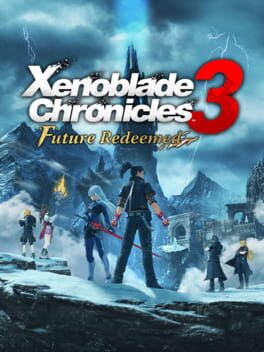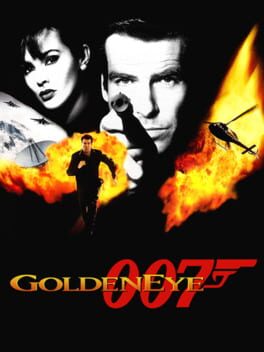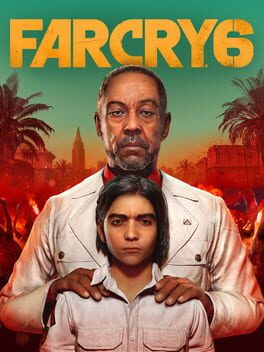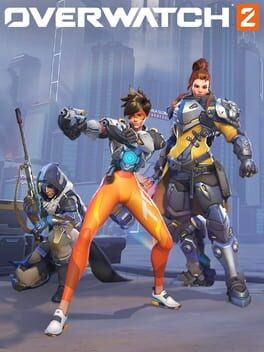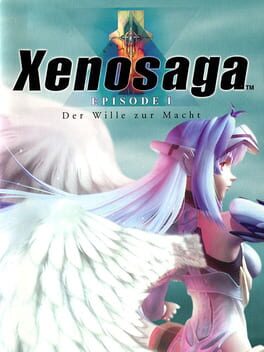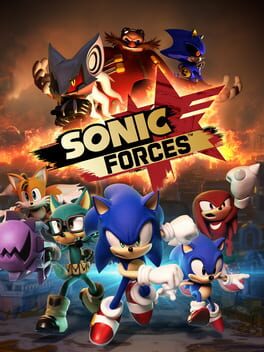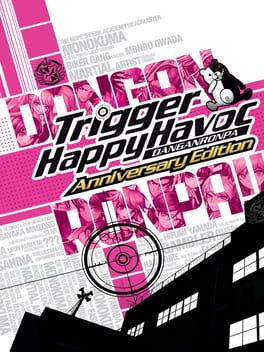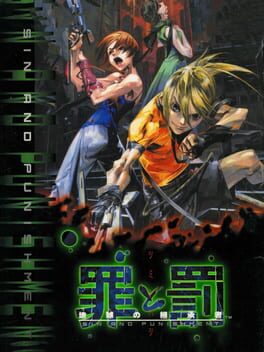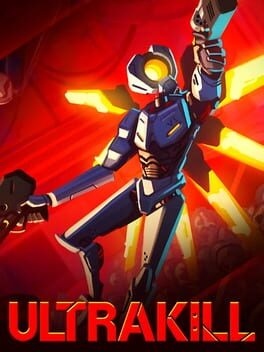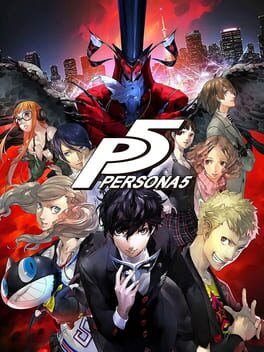Konic64
265 Reviews liked by Konic64
Future Redeemed is honestly what I expected the main story of Xenoblade 3 to be when it was first revealed. I do have issues with the core game's narrative, but none of them have to do with the setup, and in time I've come better appreciate what they crafted with that game. You need the game, its characters, and its story to stand on their own, and not be overshadowed by what came before. It picks the right moments to tug on the heartstrings with its callbacks, and it never becomes gratuitous to the point where it takes away from what they were building.
That said, this DLC was their chance to run wild and finally give us some closure to Xenoblade 1 and 2, and I'm happy to report that it absolutely does. It doesn't answer every question you might have and even leaves a bit of a tease toward future stories in this universe, but given I enjoyed the world and characters of the first two games just a tad more than 3, I unabashedly wanted more. I wanted the DLC to gesture and go "Here's the thing you like from those games!" so I could point and clap and exclaim "Thank you Takahashi!" And, you know what? Future Redeemed was more than happy to oblige. I'm paying for extra content, so give me my money's worth.
Speaking of which, Future Redeemed continues to trend established by past titles in just giving you an entirely new game to the point where it barely even feels like DLC. It's not nearly as expansive as the base game naturally, but this new area of Aionios is still far more vast than you'd expect and filled with plenty of new characters, side quests and places to explore. Some of your upgrades have now been delegated to items you find in the overworld, even futher rewarding exploration, and the new Ouroboros powers streamline combat a bit more, which I liked. Since the technology hasn't been perfected yet, you don't get the full combined transformations that Noah and his group have, but given that power often trivialized battles with how, well, overpowered it was, there's a bit more challenge to the combat in the DLC.
I liked the cast of Future Redeemed a lot, even if they aren't given quite as much time to develop as the main six from Xenoblade 3. Matthew establishes himself quite quickly as a worthy main character, and he plays off well with his companion A. Shulk and Rex, of course, are as fantastic as ever, and seeing how much they've grown since their respective games only furthered my love for both (but hey, let's be honest, Rex steals the show here). Nikol and Glimmer, unfortunately, aren't quite given the same amount of time to shine. They do get somewhat there by the end, but they face the problem of having their backstories tread the same ground of those already covered in the main game, so a fair bit of their development is glossed over. As a whole, though, this game's party holds up extremely well with past games and I'm exceedingly happy with where they left things off with Shulk and Rex. The entire last chapter was kino as hell.
I'm truly overjoyed that Takahashi and the entire team at Monolith Soft were able to fully realize their dreams and ambitions with the Xenoblade series. They've become Nintendo's new golden child developers in my eyes and I'm incredibly excited about what they have in store going forward, whether it's a continuation of this series or something entirely new. I will be there day one either way.
That said, this DLC was their chance to run wild and finally give us some closure to Xenoblade 1 and 2, and I'm happy to report that it absolutely does. It doesn't answer every question you might have and even leaves a bit of a tease toward future stories in this universe, but given I enjoyed the world and characters of the first two games just a tad more than 3, I unabashedly wanted more. I wanted the DLC to gesture and go "Here's the thing you like from those games!" so I could point and clap and exclaim "Thank you Takahashi!" And, you know what? Future Redeemed was more than happy to oblige. I'm paying for extra content, so give me my money's worth.
Speaking of which, Future Redeemed continues to trend established by past titles in just giving you an entirely new game to the point where it barely even feels like DLC. It's not nearly as expansive as the base game naturally, but this new area of Aionios is still far more vast than you'd expect and filled with plenty of new characters, side quests and places to explore. Some of your upgrades have now been delegated to items you find in the overworld, even futher rewarding exploration, and the new Ouroboros powers streamline combat a bit more, which I liked. Since the technology hasn't been perfected yet, you don't get the full combined transformations that Noah and his group have, but given that power often trivialized battles with how, well, overpowered it was, there's a bit more challenge to the combat in the DLC.
I liked the cast of Future Redeemed a lot, even if they aren't given quite as much time to develop as the main six from Xenoblade 3. Matthew establishes himself quite quickly as a worthy main character, and he plays off well with his companion A. Shulk and Rex, of course, are as fantastic as ever, and seeing how much they've grown since their respective games only furthered my love for both (but hey, let's be honest, Rex steals the show here). Nikol and Glimmer, unfortunately, aren't quite given the same amount of time to shine. They do get somewhat there by the end, but they face the problem of having their backstories tread the same ground of those already covered in the main game, so a fair bit of their development is glossed over. As a whole, though, this game's party holds up extremely well with past games and I'm exceedingly happy with where they left things off with Shulk and Rex. The entire last chapter was kino as hell.
I'm truly overjoyed that Takahashi and the entire team at Monolith Soft were able to fully realize their dreams and ambitions with the Xenoblade series. They've become Nintendo's new golden child developers in my eyes and I'm incredibly excited about what they have in store going forward, whether it's a continuation of this series or something entirely new. I will be there day one either way.
GoldenEye 007
1997
"GoldenEye has aged poorly." - Statement dreamed up by the utterly deranged.
The impact that GoldenEye 007 had on the industry cannot be overstated and is only denied by the saltiest of PC fanboys. But is it still fun today? In replaying the entire thing through Nintendo Switch Online, the answer for me is unequivocally yes. Though a lot of things in the game feel very rudimentary or basic by today's standards, such as level design or enemy AI, it was truly groundbreaking at the time and still lends itself to making GoldenEye feel like a game that had genuine thought put into every aspect of it (even if the developers admitted they were essentially making it up on the fly).
When you talk merely about the single-player campaign, the mission structure alone is enough to keep this game relevant. At the time FPS design was largely just mowing down enemies in an arena or hallway and occasionally finding a key or something similar to progress. However, giving mission objectives - that increase in scope with the difficulty - allowed for a more fulfilling experience. There are still shooters being made today that are brain-dead in comparison to what GoldenEye offered in terms of variety and level complexity. And to think, this is all the domino effect of this being a licensed game - the team sitting down and having to consider "How do we make a James Bond title?" For most games, being a licensed product would be a kiss of death, but in GoldenEye's case, it may have been its saving grace.
And yes, obviously, as a console shooter made before the invention of the dual-stick control scheme, that's always going to the one area you point to and go "Well, that definitely hasn't aged well." And that's not wrong, but thankfully, the mad lads at Rare were so forward-thinking in their control scheme options that, combined with some system-level button remapping on the Switch, you can totally approximate a dual-stick control setup with the Pro Controller. And it works surprisingly well! Manually aiming is still a bit finicky, but GoldenEye does have very generous auto-aim, so for a casual playthrough, you lose almost nothing with the NSO version of the game. And GoldenEye is 16:9 compatible too! In many ways, it holds up better than most games of its era.
So yeah, GoldenEye rocks - it did when I played it back in 1997 and it does playing it again in 2023. It still has issues, like the endless clown car of respawning enemies in some areas or certain objectives not always being clear, but it's still a fantastic game overall. Put some respect back on its name because it truly deserves it.
The impact that GoldenEye 007 had on the industry cannot be overstated and is only denied by the saltiest of PC fanboys. But is it still fun today? In replaying the entire thing through Nintendo Switch Online, the answer for me is unequivocally yes. Though a lot of things in the game feel very rudimentary or basic by today's standards, such as level design or enemy AI, it was truly groundbreaking at the time and still lends itself to making GoldenEye feel like a game that had genuine thought put into every aspect of it (even if the developers admitted they were essentially making it up on the fly).
When you talk merely about the single-player campaign, the mission structure alone is enough to keep this game relevant. At the time FPS design was largely just mowing down enemies in an arena or hallway and occasionally finding a key or something similar to progress. However, giving mission objectives - that increase in scope with the difficulty - allowed for a more fulfilling experience. There are still shooters being made today that are brain-dead in comparison to what GoldenEye offered in terms of variety and level complexity. And to think, this is all the domino effect of this being a licensed game - the team sitting down and having to consider "How do we make a James Bond title?" For most games, being a licensed product would be a kiss of death, but in GoldenEye's case, it may have been its saving grace.
And yes, obviously, as a console shooter made before the invention of the dual-stick control scheme, that's always going to the one area you point to and go "Well, that definitely hasn't aged well." And that's not wrong, but thankfully, the mad lads at Rare were so forward-thinking in their control scheme options that, combined with some system-level button remapping on the Switch, you can totally approximate a dual-stick control setup with the Pro Controller. And it works surprisingly well! Manually aiming is still a bit finicky, but GoldenEye does have very generous auto-aim, so for a casual playthrough, you lose almost nothing with the NSO version of the game. And GoldenEye is 16:9 compatible too! In many ways, it holds up better than most games of its era.
So yeah, GoldenEye rocks - it did when I played it back in 1997 and it does playing it again in 2023. It still has issues, like the endless clown car of respawning enemies in some areas or certain objectives not always being clear, but it's still a fantastic game overall. Put some respect back on its name because it truly deserves it.
It starts with a janitor.
You're tasked with trailing him to his house in your car for a uniform. All you have to do is wait and, when the time is right, have a polite conversation with him.
So, anyway, I put a bomb on his door and blew him up the second he walked over to it. I punched him, tased him, shot him, poured gasoline on his brand-new car, and rammed his brand-new car with my stolen one. When I was supposed to park my car around the corner, I made the side of his car my parking lot. All of this "spooked" him, but never once did he die.
Like Classic Rock, Open World is an umbrella term. You have your Checklist Open Worlds, Zelda Open Worlds, Open Worlds that play like STALKER, Open Worlds by Bethesda, and so on. And then you have Rockstar games. The selling point is detail: in Fallout 3, technical limitations mean that every time you see a train running, what you're experiencing is an unnamed citizen with a train hat on, literally running. With Rockstar, the nails in the train tracks around the world are dynamically hammered in by unnamed NPCs that you can talk to. Cars turn realistically in Grand Theft Auto IV, and your average fast-travel system is replaced with a network of trains that you can interact with unscripted. Viewed separately from the content in them, they're masters in their field.
Ultimately, it all comes back to that janitor in the end. I've ruminated on it before, but a lot of what I find to be funny about that scene, in particular, is an imbalance between content and context. It's funny to keep failing specifically because the game asks you not to but puts in no safeguards to keep you from using its more emergent systems against itself. The issue Grand Theft Auto V has is that its caricatures only accelerate this imbalance. If the entire experience is supposed to be stupid, head empty, dumb fun, why play the rules at all?
In Red Dead Redemption II, I occasionally did the same thing. The game was linear, and I was bored, so I gave myself something to laugh at. But more of my time was spent in a modded version of the photo mode, where landmarks as simple and small as hills became vital storytelling tools for my version of Arthur Morgan. Abandoned wagons spoke to a quiet feeling of loss as fog enveloped the greenery. As nature took its course, I felt my figure shrink until it folded into the shadowy figure of the mountains behind me. It could only last for so long—but at least I was there for the trip. Farewell.
There's an inherent sense of melancholy in Red Dead Redemption II's world that I've seldom felt in the games I've played—much less from the Houser brothers and their culture of debauchery. To their credit, much of that comes from the narrative and characters. But beyond anything they had more than a minor role in, it's due to sunsets, fog, red dirt, and dry sand more than anything else. Red Dead Redemption II made me understand the cliche of riding into the sunset beyond a bus I took in high school one time, and it made me want to keep riding through the dark.
Another returning issue from other Rockstar games is as follows: movement still feels janky. I don't find it surprising at all that legendary filmmaker John Carpenter, fan of Sonic Unleashed and Halo Infinite, couldn't bring himself to finish this game. First-person mode here is a continent and two miles above what they half-assed into Grand Theft Auto V for the PlayStation 4 and Xbox One ports, and thus it's the way I recommend playing this. But eventually, you have to get on a horse, and there's no perspective you can control that in where it always feels as intuitive as you want it to be. Crucially, while running around, it was very easy to me to tackle someone accidentally in a public space. I am grateful that the police system in this is more lenient than what's currently in Cyberpunk 2077, because I would have quit otherwise. But it's not perfect, either. You can always pay off your bounties, meaning that while the ride to a nearby post office can be tense, it occasionally feels like there are no meaningful repercussions for aberrant behavior. Combat in Red Dead Redemption II feels better than anything else Rockstar has ever done; using the revolver actually gives you a reason to hip-fire instead of aiming at everything, and it feels glorious. But it's impossible to ignore that a lot of betrays the narrative cohesion found in the cinematics. Given how much of a vibe this game can be, it's a total shame that it falls victim to the Rockstar trope of every mission being either a Shootout Mission, Chase Mission, or Inconvenient Mission that Secretly Becomes a Shootout at the Last Second. As much fun as I had using the shotguns in this game, at some point, I was just kind of over it, and while that's not a feeling that stuck for very long, it never truly went away.
I loved Arthur Morgan, and I loved having him wear a brown coat and have long hair because those are the things that make me feel effeminate and manly at the same time. I loved naming my horse after a television reference because I had one of the final knife twists spoiled for me in advance, and also because it was a cute name for my horse. I liked both Epilogue parts, and I can understand the excuses someone might make for Guarma.
Easily Rockstar's best, I can't wait to see how they fuck up their next game.
You're tasked with trailing him to his house in your car for a uniform. All you have to do is wait and, when the time is right, have a polite conversation with him.
So, anyway, I put a bomb on his door and blew him up the second he walked over to it. I punched him, tased him, shot him, poured gasoline on his brand-new car, and rammed his brand-new car with my stolen one. When I was supposed to park my car around the corner, I made the side of his car my parking lot. All of this "spooked" him, but never once did he die.
Like Classic Rock, Open World is an umbrella term. You have your Checklist Open Worlds, Zelda Open Worlds, Open Worlds that play like STALKER, Open Worlds by Bethesda, and so on. And then you have Rockstar games. The selling point is detail: in Fallout 3, technical limitations mean that every time you see a train running, what you're experiencing is an unnamed citizen with a train hat on, literally running. With Rockstar, the nails in the train tracks around the world are dynamically hammered in by unnamed NPCs that you can talk to. Cars turn realistically in Grand Theft Auto IV, and your average fast-travel system is replaced with a network of trains that you can interact with unscripted. Viewed separately from the content in them, they're masters in their field.
Ultimately, it all comes back to that janitor in the end. I've ruminated on it before, but a lot of what I find to be funny about that scene, in particular, is an imbalance between content and context. It's funny to keep failing specifically because the game asks you not to but puts in no safeguards to keep you from using its more emergent systems against itself. The issue Grand Theft Auto V has is that its caricatures only accelerate this imbalance. If the entire experience is supposed to be stupid, head empty, dumb fun, why play the rules at all?
In Red Dead Redemption II, I occasionally did the same thing. The game was linear, and I was bored, so I gave myself something to laugh at. But more of my time was spent in a modded version of the photo mode, where landmarks as simple and small as hills became vital storytelling tools for my version of Arthur Morgan. Abandoned wagons spoke to a quiet feeling of loss as fog enveloped the greenery. As nature took its course, I felt my figure shrink until it folded into the shadowy figure of the mountains behind me. It could only last for so long—but at least I was there for the trip. Farewell.
There's an inherent sense of melancholy in Red Dead Redemption II's world that I've seldom felt in the games I've played—much less from the Houser brothers and their culture of debauchery. To their credit, much of that comes from the narrative and characters. But beyond anything they had more than a minor role in, it's due to sunsets, fog, red dirt, and dry sand more than anything else. Red Dead Redemption II made me understand the cliche of riding into the sunset beyond a bus I took in high school one time, and it made me want to keep riding through the dark.
Another returning issue from other Rockstar games is as follows: movement still feels janky. I don't find it surprising at all that legendary filmmaker John Carpenter, fan of Sonic Unleashed and Halo Infinite, couldn't bring himself to finish this game. First-person mode here is a continent and two miles above what they half-assed into Grand Theft Auto V for the PlayStation 4 and Xbox One ports, and thus it's the way I recommend playing this. But eventually, you have to get on a horse, and there's no perspective you can control that in where it always feels as intuitive as you want it to be. Crucially, while running around, it was very easy to me to tackle someone accidentally in a public space. I am grateful that the police system in this is more lenient than what's currently in Cyberpunk 2077, because I would have quit otherwise. But it's not perfect, either. You can always pay off your bounties, meaning that while the ride to a nearby post office can be tense, it occasionally feels like there are no meaningful repercussions for aberrant behavior. Combat in Red Dead Redemption II feels better than anything else Rockstar has ever done; using the revolver actually gives you a reason to hip-fire instead of aiming at everything, and it feels glorious. But it's impossible to ignore that a lot of betrays the narrative cohesion found in the cinematics. Given how much of a vibe this game can be, it's a total shame that it falls victim to the Rockstar trope of every mission being either a Shootout Mission, Chase Mission, or Inconvenient Mission that Secretly Becomes a Shootout at the Last Second. As much fun as I had using the shotguns in this game, at some point, I was just kind of over it, and while that's not a feeling that stuck for very long, it never truly went away.
I loved Arthur Morgan, and I loved having him wear a brown coat and have long hair because those are the things that make me feel effeminate and manly at the same time. I loved naming my horse after a television reference because I had one of the final knife twists spoiled for me in advance, and also because it was a cute name for my horse. I liked both Epilogue parts, and I can understand the excuses someone might make for Guarma.
Easily Rockstar's best, I can't wait to see how they fuck up their next game.
Far Cry 6
2021
The easiest way I can describe this type of open world design is this:
I like instant ramen a lot. Is it as good as actual ramen? Hell no. But it's easy, reliable, and makes for a good breakfast in the morning.
Just because I like instant ramen does not mean I love two packages of instant ramen cooked in the same bowl. I mean, I don't hate it. It's more of what I like, up to a certain point. Past that point, it's chewing, chewing, chewing, and then there's the broth. Fuuuuck, the broth. By the time I'm done with the noodles, I feel like I've committed a cardinal sin of some type and my stomach ain't having it. It wants to go on strike, but I can't resist the alluring temptation of the broth. By the time I'm done with a bowl, I never want to touch the shit again. I'm getting too fat, Jesus Christ, I should eat, like, broccoli or something next time.
I know how arbitrary and stupid that metaphor is, but really, that's what these massive open worlds feel like. I'd love to say that it's a Ubisoft problem, but Just Cause 2 did the same thing in 2010. These clutter-boxes just aren't to my appetite, and that's a shame.
I like instant ramen a lot. Is it as good as actual ramen? Hell no. But it's easy, reliable, and makes for a good breakfast in the morning.
Just because I like instant ramen does not mean I love two packages of instant ramen cooked in the same bowl. I mean, I don't hate it. It's more of what I like, up to a certain point. Past that point, it's chewing, chewing, chewing, and then there's the broth. Fuuuuck, the broth. By the time I'm done with the noodles, I feel like I've committed a cardinal sin of some type and my stomach ain't having it. It wants to go on strike, but I can't resist the alluring temptation of the broth. By the time I'm done with a bowl, I never want to touch the shit again. I'm getting too fat, Jesus Christ, I should eat, like, broccoli or something next time.
I know how arbitrary and stupid that metaphor is, but really, that's what these massive open worlds feel like. I'd love to say that it's a Ubisoft problem, but Just Cause 2 did the same thing in 2010. These clutter-boxes just aren't to my appetite, and that's a shame.
Overwatch 2
2023
This review was written before the game released
The opposite of what it should have been. 4 years of dev time which led to little content, the vaulting of content, bugs that make them take out heroes for weeks at a time and quite possibly the single worst transition to F2P that I have ever seen. I’m not getting into why this is a travesty beyond belief. All you need to know is, you can’t go back to Overwatch 1. You know, the game I paid for. Doesn’t exist anymore. Gone like my love for Overwatch.
UPDATE from mid Season 4: Developer update just dropped and the PVE hero missions (one of the bigger selling points) has been canned. Apparently this had been a thing since before the launch of OW2 but we are only finding out about it now which is super dumb. At least the story mode missions (the thing that I was more interested in) is still coming out sometime in Season 6 (a full year after OW2's release) but it's being drip fed to us in story arcs versus the original expectation of the full campaign on launch, which is, lame as fuck.
I don't understand how all of this could happen besides poor management and meddling from higher up which just tracks with the awful monetization that this game released with. This game wasn't free to most as it came with the price of losing a game we paid for. I'm horribly disappointed at what this game has become, and I think I've lost all hope for the future of this game. I'll probably come back for the story missions but watch them make it a limited time event mode or some shit just to follow the FOMO bullshit that they peddle. I miss Overwatch.
UPDATE from mid Season 4: Developer update just dropped and the PVE hero missions (one of the bigger selling points) has been canned. Apparently this had been a thing since before the launch of OW2 but we are only finding out about it now which is super dumb. At least the story mode missions (the thing that I was more interested in) is still coming out sometime in Season 6 (a full year after OW2's release) but it's being drip fed to us in story arcs versus the original expectation of the full campaign on launch, which is, lame as fuck.
I don't understand how all of this could happen besides poor management and meddling from higher up which just tracks with the awful monetization that this game released with. This game wasn't free to most as it came with the price of losing a game we paid for. I'm horribly disappointed at what this game has become, and I think I've lost all hope for the future of this game. I'll probably come back for the story missions but watch them make it a limited time event mode or some shit just to follow the FOMO bullshit that they peddle. I miss Overwatch.
Overwatch 2
2023
Overwatch 2
2023
Overwatch 2
2023
This review was written before the game released
no matter how long its been, overwatch has been the perfect example for how to NOT handle a game. when OW1 came out, it wasnt just a fun game, it was a worldwide cultural phenomenon. people couldnt stop playing it, talking about it, and jacking off to it. but over time, its been deteriorating to the point where it barely resembles the game it once was, and now theyve just added a new coat of paint to the game and slapped a 2 sticker on the cover. its honestly crazy how little this game feels like a new game, despite not being the overwatch 1 we played endlessly back in 2016. but hey, its not JUST the same multiplayer you've already been playing but with two less players, the biggest selling point about OW2 is that theres going to be a campaign! PvE!!! THIS was the reason to spend another crispy $60! wait its free to play? and its not launching with the PvE stuff? and now, about 12~ hours before i wrote this review, the devs announced that it would be too hard to make the PvE mode and have scrapped it entirely? what a fucking joke. the only reason overwatch 2 exists now is to just generate new gay characters to announce every time an actiblizz exec gets caught with klan robes in his closet.
xeno bros when u tell them u want to play xenoblade chronicles X 2 and not a 100 hour turn-based and multimedia JRPG series from 2002-2006 about nietzsche, jung and the bible in the context of a space adventure and how KOS-MOS' tit window and garter belts relate to that in terms of surface level understandings of quantum physics shown through the eyes of a menally ill engineer lesbian
Sonic Forces
2017
Sonic Forces does not try. Yes, the character customization is neat, and the reuniting of characters from across the series is a fun idea, but Sonic Forces feels tedious to play through. The gameplay for Sonic and your custom avatar are playable, but the stages are so short and the controls feel like "press a button to win" at many times throughout. Classic Sonic has the stiffest and least pleasant control scheme, and it feels like these levels happen a lot more often than the other two. The stages (and the whole game) are too short to be memorable, and while there are some gimmicks towards the latter stages of the game, many of them frustrate than add any type of excitement to the gameplay. Sonic Forces is unapologetically half-assed, ranging from boring to unplayable throughout its run-time.
It's bad. Holy shit, it's so bad. All the characters, especially the protagonist, are absolute morons. The puzzles are all obvious, the shooting feels boring, the absorb bullet mechanic is terrible, you move around the overworld with the mannerisms of a drunkard, just all around an unenjoyable experience. "Oh, but the writing's good!" Not really. The game expects you to just accept a ton of unreasonable circumstances and roll with it. "The doors lock... just because, okay!" It unironically feels like a child wrote this.
The music is decent though.
The music is decent though.
Sin and Punishment
2000
Ultrakill
2020
Sonic Forces
2017
"I expect nothing and I'm still let down."
Sonic Forces is a game that I feel gets too much hate for what it actually is, but a game that still deserves it for what it ultimately represents: a title sold on misdirection and the culmination of bad decisions and lack of care that have come to symbolize the worst of Sonic Team. I wasn't even hyped for this game; I legitimately expected nothing. I've been in the Sonic game far too long to let myself ever get excited for one of these. And yet that it still managed to disappoint despite zero expectations is a feat worthy of a few words to be said.
The heart of the matter is this: Sonic Forces is lame. Really lame. It didn't frustrate the hell out of me like Sonic Unleashed, it's not completely forgettable like Sonic Lost World, and it's not a buggy mess like Sonic 2006 or Sonic Boom. It's not even an entirely bad game; there are things to like about what it does. But it's ultimately a game that wants you to believe it's something cooler, more serious than it truly is, that completely undercuts any fun you might be having almost immediately after you start feeling good about it.
Forces is what I initially feared Sonic Generations was going to be but wasn't. Generations is like a shining light in the last 20 years of Sonic darkness. THE game that broke the Sonic Cycle and showed you could make a game with the boost formula good even despite its inherent flaws. So to see Forces come along with the same general design philosophy and yet miss the mark so hard? You have to wonder if Generations was some kind of miracle because everything that game was, Forces isn't.
Here, Classic Sonic's levels are incredibly uninspired and lack any sort of creative gimmicks. Modern Sonic represents the epitome of bad boost-to-win gameplay, with terrible level design and no sense of flow. Both are plagued with bizarre control issues, particularly Classic Sonic where even simple things like landing on a platform are made incredibly difficult with weird momentum shifts and the inability to properly control yourself mid-air. The only saving grace here is that only a handful of levels have any real sense of platforming to them, so you can mostly just hold forward/right to get to the end of the stage. Levels are also extremely short, some of which barely last a minute. It's the definition of quantity over quality, the starkest of contrast to Sonic Generations.
That said, I surprisingly did enjoy the Avatar stages. They all had a sense of excitement and energy to them that was lacking in the mostly cookie-cutter Classic and Modern levels. While the occasional stop-and-go gameplay could sometimes be a bit jarring, it made the experience feel a lot like a Sonic Adventure game (especially when using the Lightning Wispon to light dash). It's the closest any game has come to feel like that since Sonic 06. The Avatar also had the best music in the game, contributing to that Adventure-era feeling, whereas Modern Sonic's more synth-inspired music was serviceable and if you told me Classic Sonic's music was rejected Sonic 4 tracks, I'd believe you. They were that bad. It's so baffling how much they managed to drop the ball with the Classic and Modern stuff despite already having the perfect template in Generations, and yet the throwaway joke of a user-created character ended up being the most standout thing in the entire game.
Now let's talk story. Sonic Forces has the most nothing story that desperately wants you to think it isn't. It feels like a complete betrayal of the game's original trailers, which wanted you to believe they'd finally be giving more gravity to the narrative again. I don't expect a super serious story out of a game starring a blue hedgehog but it'd be nice when you're telling me that Eggman has taken over 99% of the world that you would show some actual consequences of that. I was beyond done with the Saturday Morning Cartoon style of humor and storytelling well before Forces released and this only further justified that opinion. Sonic himself is the most insufferable character too in this game, who can't go five seconds without an awful one-liner. It's beyond grating. Weren't you supposed to have been tortured?
Also never let them live down the fact that they hyped this game up with a trailer teasing the return of the franchise's classic villains only for them to be illusions. Worse is the game is self-aware of it. Sonic even asks Eggman why he'd need an illusion of Metal Sonic when he already has the real one. Nothing about the story of Sonic Forces makes sense, it's all incredibly disjointed and poorly told with information largely given to you via talking heads on a map screen, and almost every twist in the game is immediately uncut with "Haha you thought you won, but I had a back-up plan just in case!" Forces talks a big game about its newest villain, Infinite, but never does anything to back that up or make you believe he's a credible threat. The game's final boss is called the Death Egg Robot despite 1) having nothing to do with the Death Egg in the game's story, 2) bares little similarity to the original Death Egg Robot, and 3) is not even fought on the fucking Death Egg. Zero care or thought put into anything.
It's been five years now and if you can't tell I'm still a little miffed by Sonic Forces. Again, it's not an entirely terrible game when you break down the nuts and bolts of it, but there are so many little things that, if given just the slightest bit of effort to correct on Sonic Team's part, could have turned this into a much better experience. There was a reason they shipped this thing off to market at $40. One can only assume they've learned their lesson going into Sonic Frontiers but it remains to be seen if Sonic Team has any creative energy left to match their vision for that game.
Sonic Forces is a game that I feel gets too much hate for what it actually is, but a game that still deserves it for what it ultimately represents: a title sold on misdirection and the culmination of bad decisions and lack of care that have come to symbolize the worst of Sonic Team. I wasn't even hyped for this game; I legitimately expected nothing. I've been in the Sonic game far too long to let myself ever get excited for one of these. And yet that it still managed to disappoint despite zero expectations is a feat worthy of a few words to be said.
The heart of the matter is this: Sonic Forces is lame. Really lame. It didn't frustrate the hell out of me like Sonic Unleashed, it's not completely forgettable like Sonic Lost World, and it's not a buggy mess like Sonic 2006 or Sonic Boom. It's not even an entirely bad game; there are things to like about what it does. But it's ultimately a game that wants you to believe it's something cooler, more serious than it truly is, that completely undercuts any fun you might be having almost immediately after you start feeling good about it.
Forces is what I initially feared Sonic Generations was going to be but wasn't. Generations is like a shining light in the last 20 years of Sonic darkness. THE game that broke the Sonic Cycle and showed you could make a game with the boost formula good even despite its inherent flaws. So to see Forces come along with the same general design philosophy and yet miss the mark so hard? You have to wonder if Generations was some kind of miracle because everything that game was, Forces isn't.
Here, Classic Sonic's levels are incredibly uninspired and lack any sort of creative gimmicks. Modern Sonic represents the epitome of bad boost-to-win gameplay, with terrible level design and no sense of flow. Both are plagued with bizarre control issues, particularly Classic Sonic where even simple things like landing on a platform are made incredibly difficult with weird momentum shifts and the inability to properly control yourself mid-air. The only saving grace here is that only a handful of levels have any real sense of platforming to them, so you can mostly just hold forward/right to get to the end of the stage. Levels are also extremely short, some of which barely last a minute. It's the definition of quantity over quality, the starkest of contrast to Sonic Generations.
That said, I surprisingly did enjoy the Avatar stages. They all had a sense of excitement and energy to them that was lacking in the mostly cookie-cutter Classic and Modern levels. While the occasional stop-and-go gameplay could sometimes be a bit jarring, it made the experience feel a lot like a Sonic Adventure game (especially when using the Lightning Wispon to light dash). It's the closest any game has come to feel like that since Sonic 06. The Avatar also had the best music in the game, contributing to that Adventure-era feeling, whereas Modern Sonic's more synth-inspired music was serviceable and if you told me Classic Sonic's music was rejected Sonic 4 tracks, I'd believe you. They were that bad. It's so baffling how much they managed to drop the ball with the Classic and Modern stuff despite already having the perfect template in Generations, and yet the throwaway joke of a user-created character ended up being the most standout thing in the entire game.
Now let's talk story. Sonic Forces has the most nothing story that desperately wants you to think it isn't. It feels like a complete betrayal of the game's original trailers, which wanted you to believe they'd finally be giving more gravity to the narrative again. I don't expect a super serious story out of a game starring a blue hedgehog but it'd be nice when you're telling me that Eggman has taken over 99% of the world that you would show some actual consequences of that. I was beyond done with the Saturday Morning Cartoon style of humor and storytelling well before Forces released and this only further justified that opinion. Sonic himself is the most insufferable character too in this game, who can't go five seconds without an awful one-liner. It's beyond grating. Weren't you supposed to have been tortured?
Also never let them live down the fact that they hyped this game up with a trailer teasing the return of the franchise's classic villains only for them to be illusions. Worse is the game is self-aware of it. Sonic even asks Eggman why he'd need an illusion of Metal Sonic when he already has the real one. Nothing about the story of Sonic Forces makes sense, it's all incredibly disjointed and poorly told with information largely given to you via talking heads on a map screen, and almost every twist in the game is immediately uncut with "Haha you thought you won, but I had a back-up plan just in case!" Forces talks a big game about its newest villain, Infinite, but never does anything to back that up or make you believe he's a credible threat. The game's final boss is called the Death Egg Robot despite 1) having nothing to do with the Death Egg in the game's story, 2) bares little similarity to the original Death Egg Robot, and 3) is not even fought on the fucking Death Egg. Zero care or thought put into anything.
It's been five years now and if you can't tell I'm still a little miffed by Sonic Forces. Again, it's not an entirely terrible game when you break down the nuts and bolts of it, but there are so many little things that, if given just the slightest bit of effort to correct on Sonic Team's part, could have turned this into a much better experience. There was a reason they shipped this thing off to market at $40. One can only assume they've learned their lesson going into Sonic Frontiers but it remains to be seen if Sonic Team has any creative energy left to match their vision for that game.
Persona 5
2016
Few games exude personality as Persona 5 does--hell, it's in the name! When I say that, I'm not talking about the comic style or the jazz music or the radical theme its narrative is based around. No. It's easy to think of having a personality as having a long list of things that make you good. But at that point, you're more or less listing off affirmations about yourself. Personality, to me, is the idea that you are only human. You have flaws and strengths, and personality is the intersection of both. It's a balancing act on an individual level because if one side has too many cars, the other side cannot live at peace with itself. When you lend that out to a creative project, the intersection can go both ways: you either have a short road that ends in a cul-de-sac or a highway that sprawls into a city dotted with landmarks and littered with boisterous energy. The shorter the street is, the less-traveled it becomes. The less traveled the street is, the less noise there is to worry about. So imagine if that hypothetical city was large enough to be similar in size to the entirety of California. One hundred hours from beginning to end, with minivans and RVs and SUVs all along the way. But you're not in a minivan or an RV or an SUV; you're cruising down the street in a green Del Sol from the year 1996 with its roof sold for scrap. The choice of car is not random, nor is it done for oddly specific reasons. As Occam's razor might suggest, you're talking a small car on a mega-highway packed with big cars for every thrilling and frustrating moment that comes with being closer to something so utterly massive.
That experience is playing Persona 5 in a nutshell.
One does not need to be an aficionado of Japanese Role-playing Games to admire the scale of what Atlus' internal development team has created. One does not also need to be a fan of anime to know the exact tropes it occasionally falls upon. There's a lot to be said about the characters, optional content, and overall plot. Reviewing the game is grazing the side of writing that errs from being enjoyably over-the-top to questionable. And by questionable, I mean "adults dating minors is bad until you're the one pursuing that kind of a relationship, and also some gay stereotyping." The former is a bit weird, though, because the game expects you to project yourself onto the protagonist. With sporadic exceptions, all of his dialogs are voice acted in your head. It creates this strange dichotomy where you're playing as a teenager, and you have a lot of age-appropriate romance options. But then you might also be an adult playing the game, and it's weird for an adult to be lusting after a digital teenager, so there are options to go after adults as your teenage avatar. Both clash pretty harshly, and the best that the game does to make up for it is to play these romances off as bonuses. Get closer with your homeroom teacher, and you get to go outside after dungeon crawling, for example. The end result is that the game wants to immerse yourself in its world but pushes you so far out of the role it asks you to play that you end up seeing yourself more as an indirect player in what's going in. You are not Joker; you are the voice in his head that tells him what words are the best to say in a given moment, how best to approach a situation tactically, and what to do with his free time. This perspective does not absolve the game of its intentional or otherwise ick factor, but it at least helps you enjoy the whacky adventure he and his band of downtrodden peers go on much more.
What makes the best moments of Persona 5 stick with me more than that ick is that, while it utilizes some of the worst that anime has to offer throughout its epic-sized hundred-hour runtime, it also provides the best. The pay-offs in this game are massive, the twists surprising. And the elaborate framing of each dungeon as a heist gives this game legs that it otherwise wouldn't have. But it goes beyond that. It's the music, the visual style, and the extra factor that the User Interface brings to the party. The cars in this game's highway of personality might be filled with incompetent drivers, middle-aged men and women prone to road rage, and teenagers on spring break when things get slow, but there isn't a single one that isn't eye-catching in some way. There's an argument to be had: should style be the pet of substance, or can it carry an experience when the substance starts to drain away? Whether or not you'll find enjoyment out of Persona 5 when it's not throwing ridiculously amusing wild cards at you depends on how you answer that question. If you can't let one or two bad moments past you, I can see why you'd have a lesser appreciation of this than I do. But if you, like me, put your controller several times, facepalmed for several more minutes, groaned, and then went right back in without much of a word--my friend, you're in the right club.
Again, I believe there's a lot to be said about this that can't adequately be covered in a single review. It's like expecting somebody to write a paragraph on why an eight-hour movie has merit. Roughly thirty-three times the length of Ben Hur, Persona 5 is the kind of game that opens up to opinions across multiple different subjects and experiences. If the fact that my covering didn't mention the combat or Mementos or Morgana bummed you out, I am sorry. But you'll find that discussion in fifteen other places.
That experience is playing Persona 5 in a nutshell.
One does not need to be an aficionado of Japanese Role-playing Games to admire the scale of what Atlus' internal development team has created. One does not also need to be a fan of anime to know the exact tropes it occasionally falls upon. There's a lot to be said about the characters, optional content, and overall plot. Reviewing the game is grazing the side of writing that errs from being enjoyably over-the-top to questionable. And by questionable, I mean "adults dating minors is bad until you're the one pursuing that kind of a relationship, and also some gay stereotyping." The former is a bit weird, though, because the game expects you to project yourself onto the protagonist. With sporadic exceptions, all of his dialogs are voice acted in your head. It creates this strange dichotomy where you're playing as a teenager, and you have a lot of age-appropriate romance options. But then you might also be an adult playing the game, and it's weird for an adult to be lusting after a digital teenager, so there are options to go after adults as your teenage avatar. Both clash pretty harshly, and the best that the game does to make up for it is to play these romances off as bonuses. Get closer with your homeroom teacher, and you get to go outside after dungeon crawling, for example. The end result is that the game wants to immerse yourself in its world but pushes you so far out of the role it asks you to play that you end up seeing yourself more as an indirect player in what's going in. You are not Joker; you are the voice in his head that tells him what words are the best to say in a given moment, how best to approach a situation tactically, and what to do with his free time. This perspective does not absolve the game of its intentional or otherwise ick factor, but it at least helps you enjoy the whacky adventure he and his band of downtrodden peers go on much more.
What makes the best moments of Persona 5 stick with me more than that ick is that, while it utilizes some of the worst that anime has to offer throughout its epic-sized hundred-hour runtime, it also provides the best. The pay-offs in this game are massive, the twists surprising. And the elaborate framing of each dungeon as a heist gives this game legs that it otherwise wouldn't have. But it goes beyond that. It's the music, the visual style, and the extra factor that the User Interface brings to the party. The cars in this game's highway of personality might be filled with incompetent drivers, middle-aged men and women prone to road rage, and teenagers on spring break when things get slow, but there isn't a single one that isn't eye-catching in some way. There's an argument to be had: should style be the pet of substance, or can it carry an experience when the substance starts to drain away? Whether or not you'll find enjoyment out of Persona 5 when it's not throwing ridiculously amusing wild cards at you depends on how you answer that question. If you can't let one or two bad moments past you, I can see why you'd have a lesser appreciation of this than I do. But if you, like me, put your controller several times, facepalmed for several more minutes, groaned, and then went right back in without much of a word--my friend, you're in the right club.
Again, I believe there's a lot to be said about this that can't adequately be covered in a single review. It's like expecting somebody to write a paragraph on why an eight-hour movie has merit. Roughly thirty-three times the length of Ben Hur, Persona 5 is the kind of game that opens up to opinions across multiple different subjects and experiences. If the fact that my covering didn't mention the combat or Mementos or Morgana bummed you out, I am sorry. But you'll find that discussion in fifteen other places.
